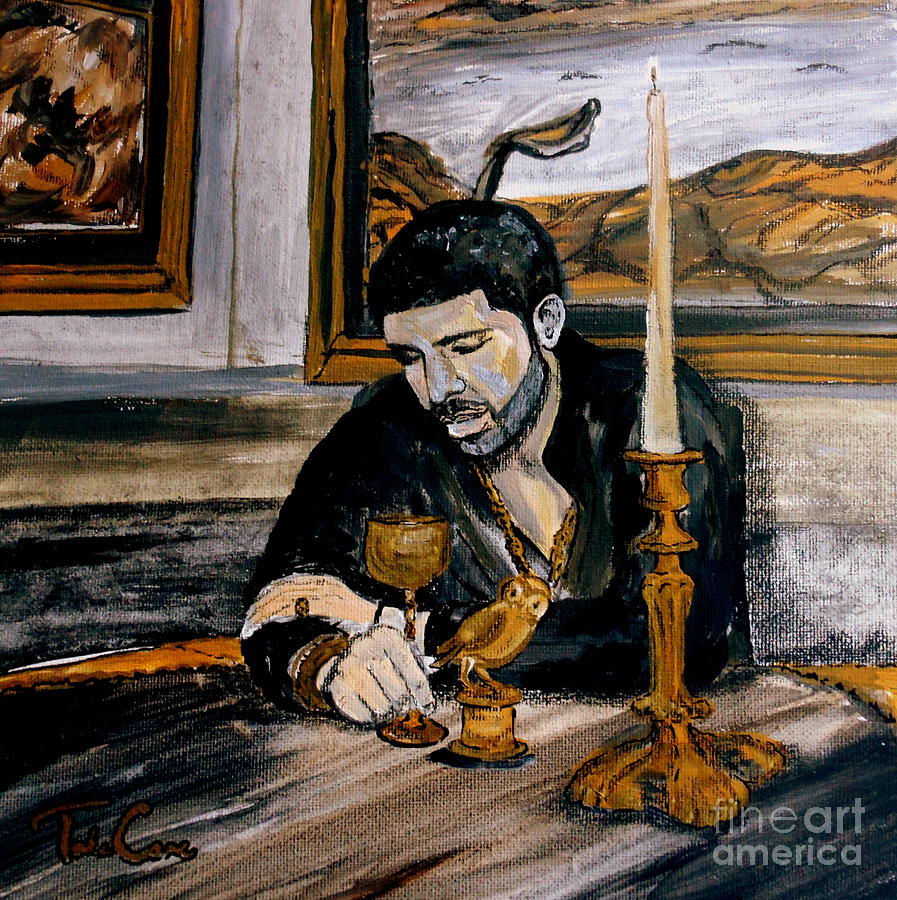Take Care is the second studio album by Canadian recording artist Drake, released November 15, 2011, on Young Money Entertainment and Cash Money Records.[1][2] It is the follow-up to his 2010 debut album Thank Me Later. Production for the album took place during 2010 to 2011 and was handled by Noah "40" Shebib, Boi-1da, T-Minus, Just Blaze, The Weeknd, and Jamie xx, among others. With the album, Drake sought to record a more cohesive recording than his debut album, which he viewed was rushed in its development.
Expanding on the sonic aesthetic of his debut album, Take Care features an atmospheric sound that is characterized by low-key musical elements and incorporates R&B, pop, and electronica styles. Drake's lyrics mostly eschew boastful raps for introspective lyrics that deal with topics such as failed romances, relationship with friends and family, growing wealth and fame, concerns about leading a hollow life, and despondency. The album has been noted by music writers for its minimalist R&B elements, existential subject matter, conflicted lyrics, and Drake's alternately sung and rapped vocals.

One of the most anticipated music releases in 2011, Take Care experienced several delays to its release date and subsequently leaked to the Internet nine days before its scheduled release.[3][4] The album has produced three singles, "Headlines", "Make Me Proud", and "The Motto", all of which attained chart success in the United States. Upon its release, Take Care received general acclaim from music critics, who praised its expansive production, emotional themes, and Drake's songwriting. It debuted at number one on the US Billboard 200 chart, selling 631,000 copies in its first week.
Music writers noted "late-night" and 1990s-era R&B in the album's music.[25][31][33][39] NPR writer Frannie Kelley notes "minimalist reworkings of TLC's minor-key soul and [...] trancey rhythms that land somewhere between paranoid Sly Stone and smoked-out Maxwell".[29] Ryan Dombal of Pitchfork Media comments that the music "breathes heavy somewhere between UGK's deep funk, quiet-storm 90s R&B, and James Blake-inspired minimalism", and interprets its subtle style to be "a direct rebuke" to the prevalance of European dance influences in mainstream music.[25] Los Angeles Times writer Todd Martens views that the album's mood and style are modelled after Kanye West's 2008 album 808s & Heartbreak.[36]
Other producers' tracks are more up-tempo and shift from the melancholic mood of Shebib's production.[31] Songs on the album are lengthy, sonically expansive,[30] and accompanied by playful interludes.[40] Lauren Carter of the Boston Herald writes of the song structure on Take Care, "Musical themes vanish and re-appear, layers build upon layers and then strip down to bare bones as tightly wound tracks give way to gauzy, lush interludes. Most songs sound intentionally distorted and warped".[30]Drake's vocals on the album feature emotional crooning, alto vocals,[36] a guttural cadence,[39] a melodic flow,[41] and a larger emphasis on singing than on his previous album, Thank Me Later.[31][42][43][44]